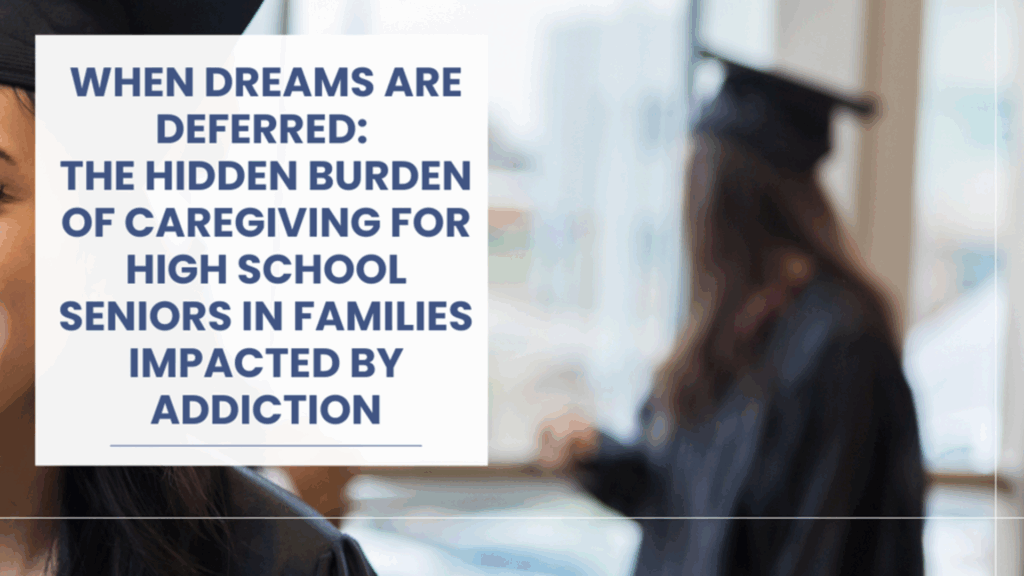Graduation season is a time for celebration. Caps fly, tassels turn, and young adults step forward into the future they’ve dreamed about. But for some high school seniors, the path forward is blocked—not by grades or finances—but by something far heavier: the unspoken role of caregiver in a family impacted by a parent’s substance use disorder (SUD).
These young people have grown up fast—far too fast. For years, they’ve shielded their younger siblings from chaos, tucked them into bed while adults were absent, and learned how to manage emergencies before they could drive a car. Now, at the threshold of adulthood, they face an impossible choice: pursue the life they’ve earned or stay behind to protect the ones they love.
The Caregiver Behind the Cap and Gown
Many of these teens are quietly carrying responsibilities that go unnoticed by teachers, counselors, and peers. They help with homework, make meals, and monitor moods in the home with a kind of hypervigilance that would be exhausting for any adult—let alone a child. They have learned to sense the smallest shifts in tone or behavior, bracing themselves for what might come next.
This state of constant alertness often leaves little room for rest, let alone dreams. And when the time comes to consider college, especially out of town, many simply don’t apply. They know that if they leave, the fragile balance at home may collapse. So, they sacrifice—often without ever naming it as such.
A Silent, Unhealed Wound
It’s important to recognize that these young caregivers are not only managing the present—they are still healing from their own past. Many have never had the space or support to process what it has meant to grow up with a parent experiencing a substance use disorder. Their need to protect siblings often stems from deep empathy, but also from unresolved pain. In protecting others, they may delay or avoid their own healing.
They also carry a heavy silence. In school and in their communities, they may work hard to present everything as “normal.” Fear of judgment or unwanted intervention can keep them from reaching out. As a result, their isolation grows—just as their futures begin to narrow.
Breaking the Silence, Opening the Door
We must do more to recognize and support these brave, selfless teens. It begins by looking past the surface and asking questions with compassion. School counselors, mentors, and educators can play a critical role by offering resources that acknowledge the complexity of family addiction without shame. Programs that include NACoA’s Children’s Program Kit and the Seven Cs created by Jerry Moe, can help students understand that:
• They didn’t cause their parent’s substance use disorder.
• They can’t control or cure it.
• But they can care for themselves and their futures.
Supportive conversations, flexible college options, and mental health resources can help open the door to possibility—without forcing students to abandon the ones they love.
We See You
To every senior sitting in silence this graduation season: we see your strength, your heartbreak, and your courage. You deserve healing. You deserve support. And most of all, you deserve the chance to live your own life—even as you’ve spent years making sure others are safe.
